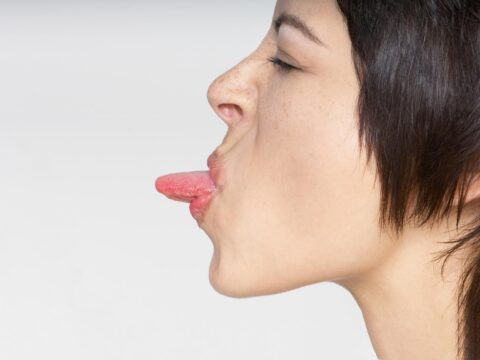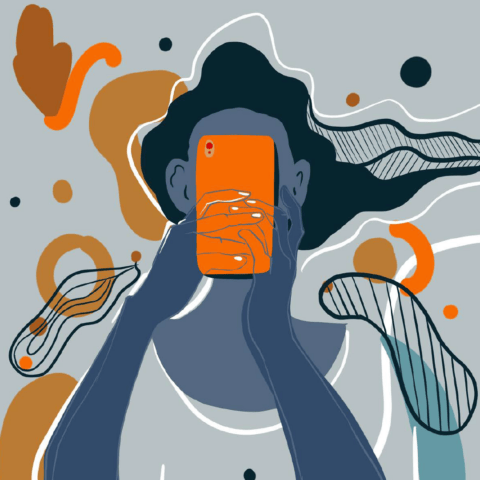It is not how much sugar you have occasionally. Treats are okay sometimes. It is more about how much sugar you consume daily.
Sugar is hard to avoid today in a world full of packaged products in almost every part of the supermarkets. It is literally everywhere and hidden in so many processed foods and drinks. It is even hidden in breakfast cereals and food labelled as “healthy”.
But it is not just the abundance of sugar that is the issue. It is your thoughts around sugar that play a big part too.
So says nutritional biochemist Dr Libby Weaver, who is also a 13 times best-selling author and international keynote speaker.
Dr Libby talks about how you can try and avoid this addictive white substance as well as her new 6-week Shake Off Sugar programme launching on February 20. This programme is designed to help sugar-lovers kick the habit of constantly chasing that sugar rush.
“So many people know they need to eat less sugar yet struggle to do so. They feel stuck with their sugar habits”.
Dr Libby talks first about the biochemical reaction you have when you have sugar.
Research shows the more sugar you have, the more you want. Sugar gives a dopamine “hit of excitement and we want it again, and again and again”.
“When we over consume sugar, our body physically and biochemically changes to crave more, and we can easily slip into a cycle where we don’t realise just how much of it we’re eating. Or we do, but we can’t seem to stop,” says Dr Libby.
The World Health Organisation’s official guidelines suggest that adults consume no more than 6 teaspoons daily. Yet, as a nation, Kiwis consume on average 37 teaspoons of sugar daily. This equates to 45 extra kilograms per person per year.
“This can have dire consequences when it comes to your health”.
“The regular overconsumption of sugar is linked to a host of serious health problems and degenerative diseases, as well as a raft of symptoms that can disrupt the quality of our daily life.
Overconsumption of sugar over a long period can impact you with things like: low energy, low mood, “anxious feelings”, brain fog, bloating, digestive issues, acne, headaches, as well as longer term consequences, such as harming your ability to shed weight.
Other serious issues resulting from a long period of overconsumption of sugar include obesity, type 2 diabetes, fatty liver disease, an increased risk of kidney damage, and heart disease, to name some.
Sugar also has a role to play with how much body fat you have.
“The more sugar we eat, the more insulin the body typically needs to produce to deal with it, which in excess, instructs the body to store fat instead of burning it. Doing this day in and day out tends to lead to insulin resistance, which can make it seemingly impossible to lose body fat, even if a person is doing everything else ‘right’. This can lead to feelings of hopelessness or failure — uncomfortable emotions that people all too often attempt to mask with a sugary fix. It can be a difficult cycle to break without the knowledge or support,” says Dr Libby.
Too much sugar can disrupt your skin too.
“Over consumption of sugar can be linked to acne, dry skin, rosacea, pigmentation, uneven skin tone – and all mostly via disruption to the gut microbiome.”
A big part to play in the overconsumption of sugar is also “the emotional part”. Women can tend to turn to sugar when they feel a gap of feeling loved, appreciated and accepted. Sugar can become a crutch.
“It can be an unconscious drive to avoid our pain – to get that sweetness, the joy”.
There is a perception that willpower is the major tool you need to harness in order to quit sugar.
“Yet for most women, after a few days, or hours, without it, their biochemistry or mindset will lead them back there. I want people to experience that this is not about willpower. So, I created the course to arm people with education and practical strategies to make lasting change,” says Dr Libby.
One part of making lasting change is understanding your thoughts that drive you to sugar and how you can learn to think, and use your language, differently around sugar.
“Food is either nutritious or not nutritious. But we label our food as good or bad and that translates to how we see ourselves. There’s a need to change how we judge ourselves because that judgement leads us back to sugar again.”
Instead, try to “catch yourself” when you judge yourself around food. Then bring curiosity to your behaviour and ask yourself what led you to your behaviour? Dr Libby explains that, for example, maybe you might have missed lunch and then later got so ravenous that you ate a packet of biscuits. If you got curious about a solution it might be that you try not to miss lunch and so you will only desire two biscuits instead.
“We need to deal with the facts, not the judgement.”
Dr Libby says clients in her new programme will look at the impact that the regular overconsumption of sugar has on the body through nutritional, biochemical and emotional lenses. The course will offer a mix of education along with practical tools and strategies on how to break behavioural patterns and crush sugar cravings.
The course also allows people to individualise their food choices for the week ahead. Plus there is a Community Forum where participants can ask questions and receive guidance from Dr Libby and interact and gain support from other “sugar shakers”.
The goal is “to help reset the body’s natural set-point for sweet foods”. Clients will also learn how to swap out sugar in everyday life “without feeling deprived”.
Shake Off Sugar begins on the 22nd of May 2023.
Find out more via https://www.drlibby.com








